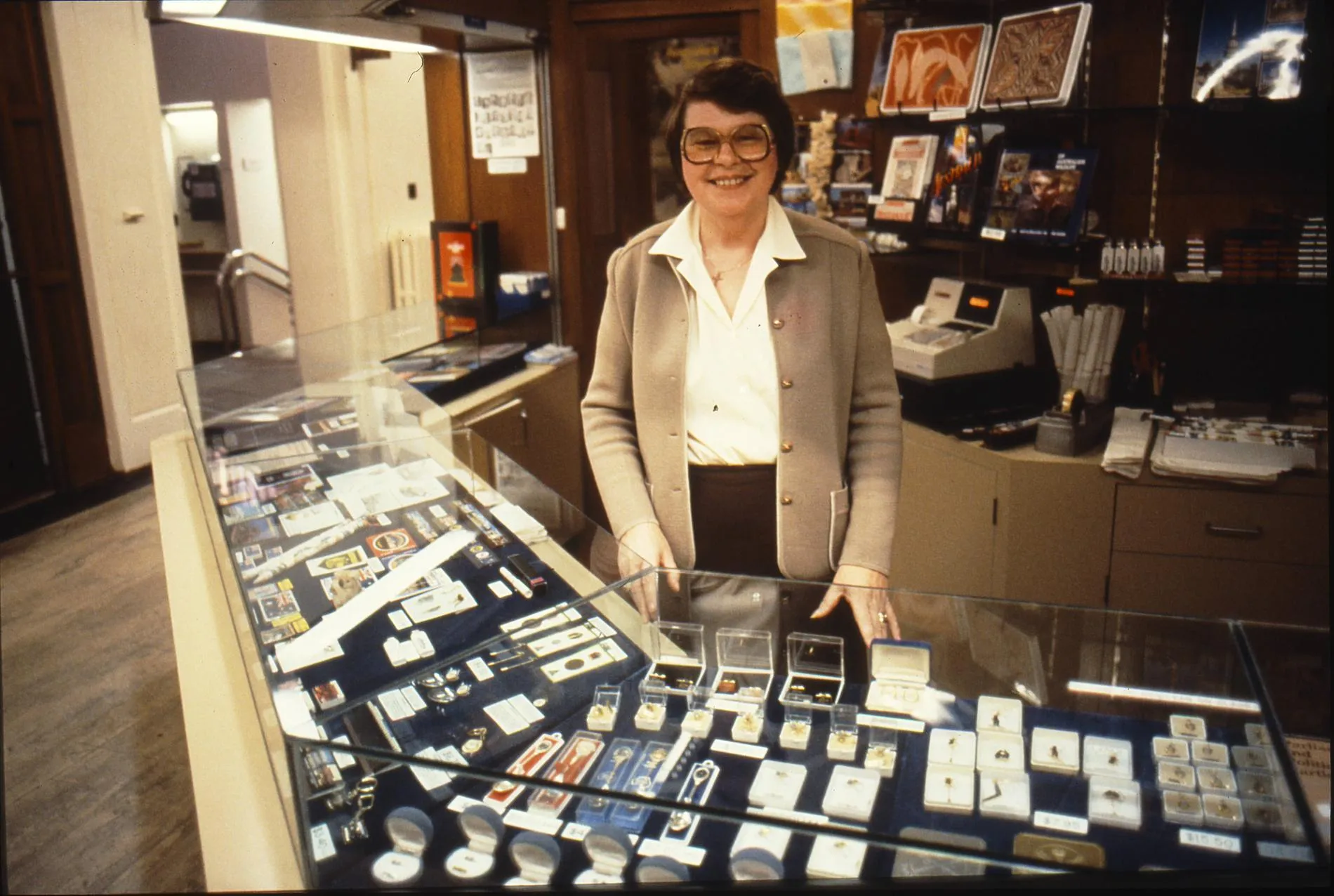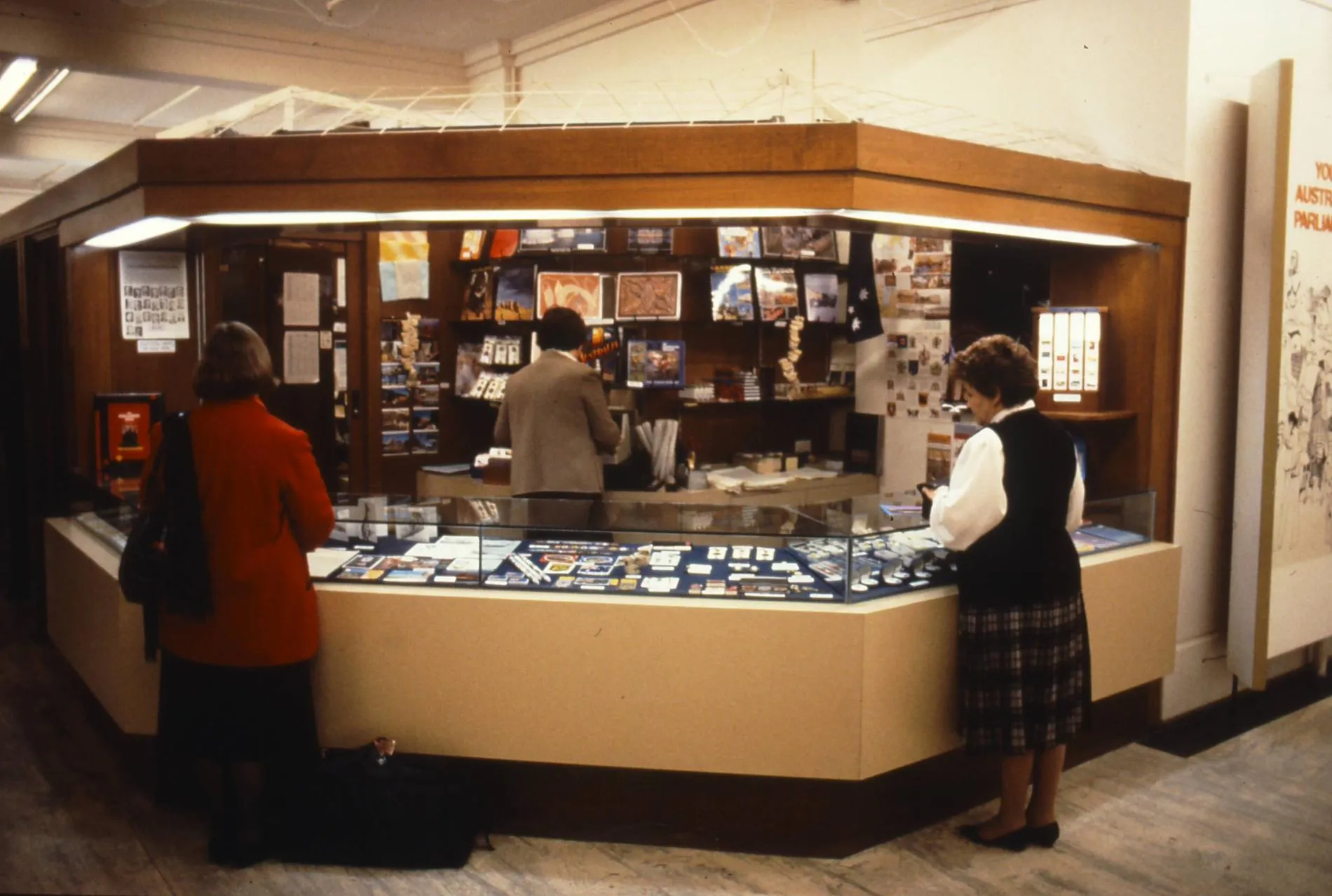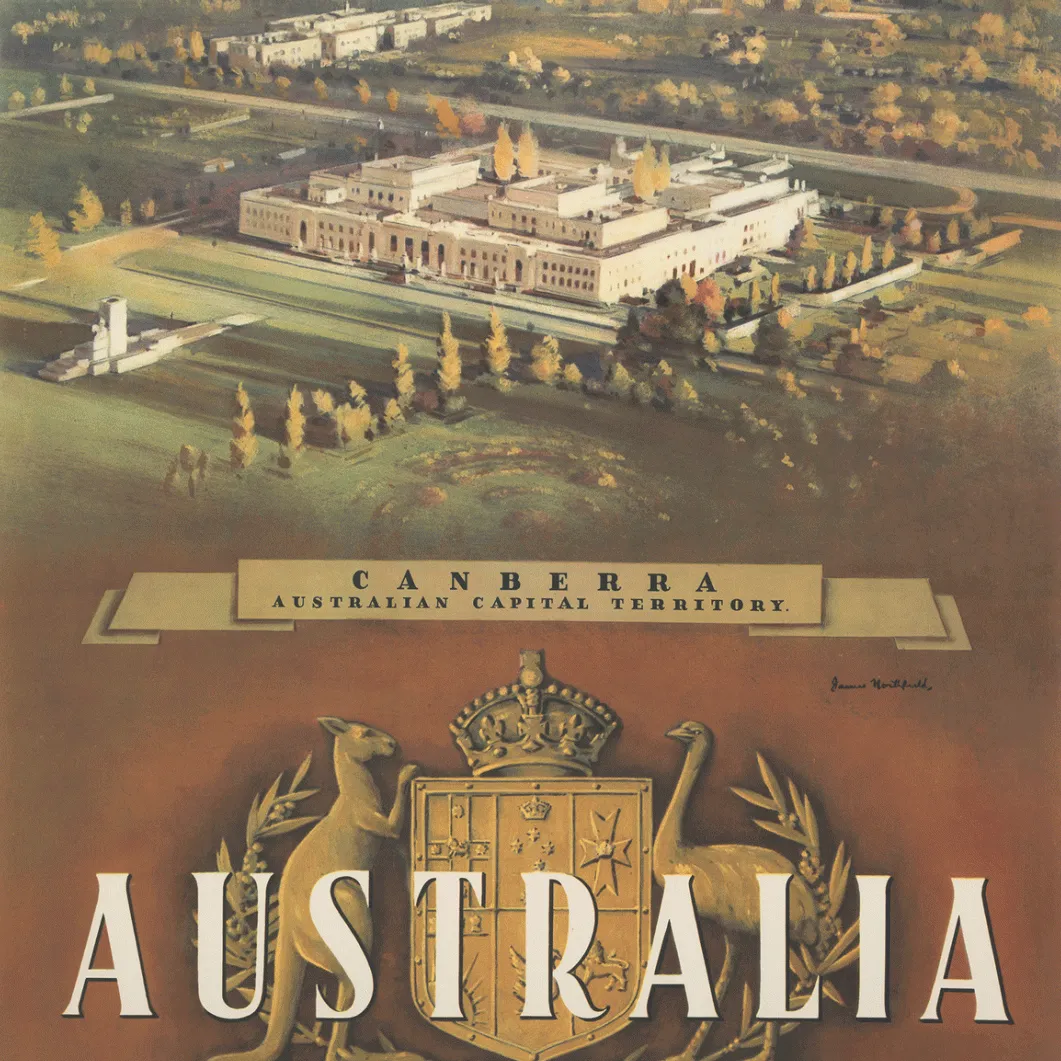Souvenir elephant
What does an elephant have in common with Parliament House?
This white ceramic elephant with a picture of Parliament House on its back isn't just a souvenir of Parliament House – it might also be political commentary on the building being called a 'white elephant'.

The term 'white elephant' was used to criticise Provisional Parliament House as excessively expensive but not useful or wanted due to being constructed in an economic downturn and going over budget.
The building was planned to be a 'provisional' parliament to serve a maximum of 50 years, so budget constraints were always a consideration. However, the construction ended up costing £644,500, nearly three times the original estimate and drew considerable criticism. The finished building was also an enormous (some may say 'elephantine') white building in a fairly empty landscape.
The name 'white elephant' was reinforced one day in 1931 when two circus elephants unexpectedly visited Parliament House and climbed the front steps. One newspaper headline trumpeted: 'Two Elephants Visit A "White" One'.
There are many ceramic souvenirs featuring images of Provisional Parliament House, indicating the considerable public interest in the building and the desire to have a souvenir relating to it. In the 1980s, the building had its own gift shop, which sold spoons, stickers, jewellery and cards relating to Canberra and Provisional Parliament House.

The Parliament House gift shop and its cabinet full of parliamentary and Canberra souvenirs. Photograph by Robert McFarlane, Department of the House of Representatives

Customers peruse the wares at the gift shop at Parliament House in the 1980s. Photograph by Robert McFarlane, Department of the House of Representatives
What is a 'white elephant'?
The phrase 'white elephant' means something with a high cost that is out of proportion to its usefulness or value to the owner. For example, while it might be worth spending a significant amount of money on prescription glasses to help you see, it would make less sense to spend lots of money on plastic novelty glasses with a fake nose attached.
Why did Provisional Parliament House cost so much?
Provisional Parliament House was meticulously designed by John Smith Murdoch to a suggested budget of £174,000 and a timeframe of 2.5 years. It is unclear what this budget was based on, and it was questioned as unrealistic from as early as 1923, when construction began. In the end, construction took longer than expected and according to Sir Neville Howse, there were 'additional services and provisions which were asked for or which it was necessary to make during the execution of the work'. It was also difficult to find workers who were willing to move to Canberra from the major cities to work on the project.









